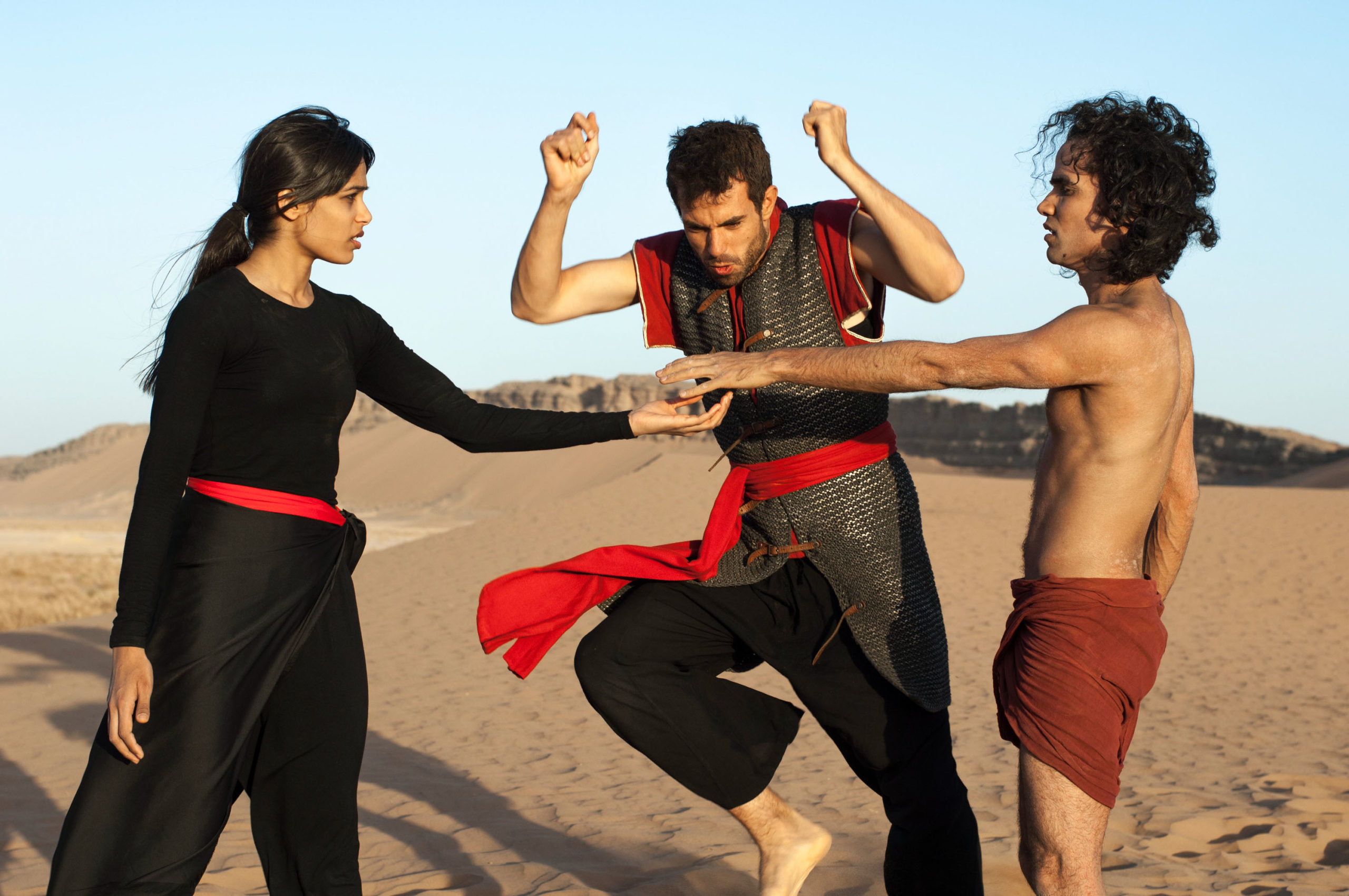Good intentions do not a good movie make, and the well-meaning Desert Dancer, the true story of Iran’s Afshin Ghaffarian, who challenged his country’s ban on dancing by forming a clandestine dance troupe before being beaten down by Iran’s political climate and eventually escaping to Europe, is one chore of a picture to get through, a largely dry and uninvolving movie about a passionate subject and theme. It should have been epic, but it is so small.
Directed by Richard Raymond from a screenplay by Jon Crocker (The Woman in Black 2: Angel of Death) and based on the true story of Ghaffarian, played here by British actor Reece Ritchie (Hercules), this is a U.K. production that immediately rings false as written and spoken in perfect English while set in Tehran, and featuring but one Iranian actor in a brief, pre-credit sequence.
Casting and language notwithstanding, there are more serious problems in Desert Dancer, the picture opening with a very young Ghaffarian being quickly schooled by his mother (Nazanin Boniadi) to suppress his classroom hoofing for fear of “the morality police,” but it isn’t long before the young prodigy is recruited by the Saba Art and Cultural Institute and mentored by salty Mehdi (Makram Khoury), one of those off-the-shelf movie characters with one recognizable function.
Flash forward and collegiate Ghaffarian (Ritchie) hooks up with a group of similarly culture-minded peers in Tehran, including the radiant Freida Pinto as Elaheh, a fledgling dancer with a heroin habit and tragic past (one that would have made a better focus for this picture).
Hacking into YouTube and consuming scores of video clips by everyone from Nureyev to Michael Jackson (yes, one character teaches another to moonwalk), the group yearns to perform publicly, but the increasingly volatile landscape keeps them underground.
And that’s about it.
On and on it goes—the formation of the troupe, riots in the streets, a secret performance, a tentative affair and a chance to escape—but despite serviceable performances and solid production values, there’s nothing special that we haven’t seen in far better films, most notably Julian Schnabel’s brilliant Before Night Falls (2000), featuring a moving Javier Bardem as the doomed, exiled Cuban poet Reinaldo Arenas. It was a real movie-movie about art, politics and the spoils of self-expression that was at once personal, cinematic and alive.
No such authenticity or poetry exists here. And while Desert Dancer’s actors underwent intense training by choreographer Akram Khan, who put them through eight-hour daily paces for weeks to capture their convincing steps, it’s the characters that ring hollow, notably the rote love story between the leads, who generate no chemistry. Ritchie doesn’t display the charisma necessary for his passionate character, and Pinto looks like she’d rather be somewhere else. For a movie about the passion of dance, where is the heat (and heart, for that matter)? Sluggish pacing only exacerbates the picture’s remoteness.
In some ways, there’s a classic plot here of young people who rebel against the system, though Desert Dancer does manage to trot out the “let’s put on a show” trope by following the gang to a desert sojourn where they are able to perform unobserved, a sequence that should have caught fire but instead feels utterly routine, like most of the picture.
Despite what sounds like a compelling movie about an important theme—how art and creativity and passion will find a way to transcend any oppressive regime—Desert Dancer is never involving, instead heavy with plot and incident but wholly failing to illuminate anything personal or unique about this story.
Only in the final scene does the picture come to life during an extended dance sequence serving as a rousing cry for liberation. In those final minutes, Desert Dancer becomes powerful stuff—but the ninety prior minutes are the problem.
2 stars.



